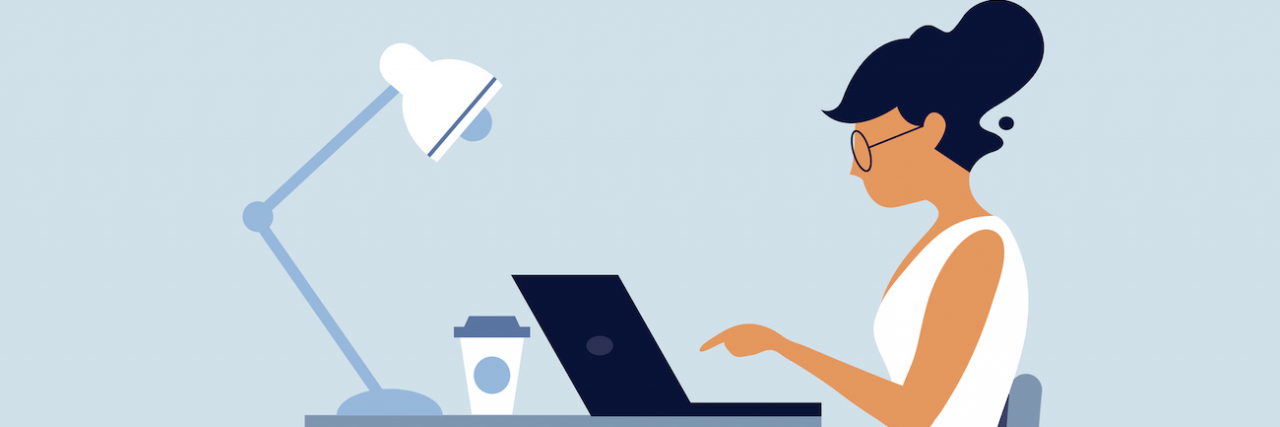I haven’t always been a wheelchair user. For the first seven years of my illness, I was still mobile, though it was a real struggle at times. During this time, my condition was completely invisible to others, including my employers, colleagues, flatmates, lovers, friends and family. It was such a struggle trying to keep up with working part-time, and even the reduced hours left me comatose in the evenings and having to use the weekends to recover before getting back on the treadmill. I had no energy left to enjoy life and became depressed. Going out and about, since people could not see how fragile I was, they could never have known to offer me a seat, to not rush me at the till, to not expect me to hold open the door for them, and not to bustle past me, knocking me out of the way. It was so isolating, being so vulnerable with no understanding or kindness from the world around me. At the time, I was still without a formal diagnosis and so would not have been able to explain what was wrong with me either, as I did not know.
So I won’t lie, transitioning to using a wheelchair, as devastating as it initially was, proved something of a relief. Finally, I didn’t have to pretend any more. The illness had weakened me, and I needed help, from my carers and even from strangers we encountered on our outings. Most people were willing and good-natured about it and I smiled back, moved by their kindness. My condition was finally out in the open, and it felt like coming out of the closet. This is not to discount all the baggage that comes with being a wheelchair user. People may have now viewed me differently, and looked down on me, even. I had occasional negative experiences with unkind (or unaware) people and more often with lack of accessibility, but for the most part, I was getting the help I needed. Especially when, after a long, drawn-out and unnecessary battle to gain disability benefits, I finally received the good news at the start of this year. I was granted Personal Independence Payment (PIP), a Severe Disability Premium grant, and a Disabled Persons Railcard and am in the process of applying for a Blue Badge, which I should be automatically eligible for.
For so long, being without help — for the first five years of being a wheelchair user I have still been invisible to the government, without the money to buy necessary aids, and with my carers unable to park in designated spaces for wheelchair uses without getting fined — suddenly, I feel accepted. It is a huge relief. I shouldn’t admit this, but I have never been so financially stable in my adult life. Of course, I would give the benefits up if it meant I could have my health back. And being handed an income is certainly not as satisfying as earning one. I do worry that I will become accustomed to having less financial pressures (meaning worrying about where my next paycheck is coming from). But what it all makes me wonder, really, is why I was left to struggle for so long, without help. Only now, 12 years after first getting sick, has my struggle finally been recognized, and it feels like justice has been served. Because perhaps if I’d had that help earlier, when my condition was “milder,” instead of having carried working and trying to hide it, it might have been prevented from becoming more severe.
I do think it’s in the interest of governments to support and protect employees who do have underlying physical and mental health conditions or disabilities, as so many of us would love to continue to work, but with some acknowledgement that we need some help to keep us in employment. So many of us are being written off instead, as I feel I have been, rather than making the extra effort to make employment accessible. In my opinion, flexibility of employers and better awareness are key to maintaining a diverse workspace where everyone can find a way to contribute without it being detrimental to their health.

